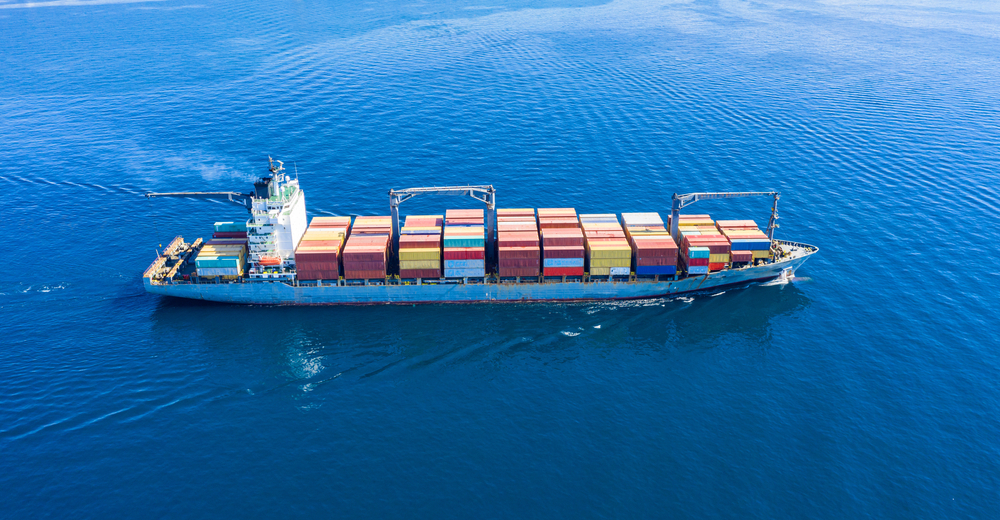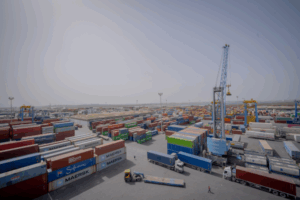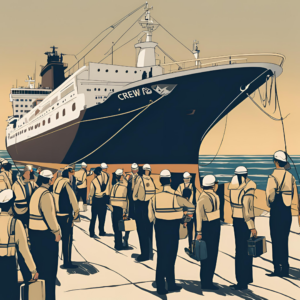Tunisia, located on the northern coast of Africa, has a long history as a maritime nation and a strategic location for international trade. The Tunisian maritime industry, comprising various ports and stakeholders, plays a vital role in facilitating trade and connectivity, serving as gateways for goods entering and leaving the region. Infrastructure developments, services, and technological advancements implemented within the industry have enhanced port efficiency, attracted foreign investments, and promoted trade growth.
This article provides an overview of Tunisia’s major ports and highlights their significance in the country’s economic development.
Overview of Major Tunisian Ports
Tunisia boasts several major ports strategically positioned along its 1,148 kilometers of coastline, each serving different trade routes and sectors. These ports, operated by the Tunisian maritime industry, are key players in Tunisia’s trade landscape:
Port of Tunis
The largest and most prominent port in Tunisia, located in the capital city. It serves as a hub for containerized cargo, handling a significant portion of Tunisia’s international trade. The port’s modern infrastructure and advanced facilities have made it a key player in promoting trade connectivity in the Mediterranean region.
Port of Radès
Situated approximately 12 kilometers south of Tunis, Radès is one of the deepest ports in the Mediterranean. It serves as a crucial gateway for container traffic, bulk cargo, and oil and gas shipments. With its state-of-the-art container terminal, Radès handles substantial volumes of imports and exports, contributing significantly to Tunisia’s trade activities.
Port of Sfax
Located on the eastern coast, Sfax is a major hub for exports of phosphates, textiles, and agricultural products. It provides access to the Mediterranean and plays a vital role in the country’s trade relations with Europe, Africa, and the Middle East.
Port of Gabès
Situated in southern Tunisia, Gabès specializes in the export of phosphates, chemicals, and petroleum products, making it an essential contributor to the national economy.
Importance of Infrastructure Investments and Improved Efficiency
Infrastructure investments are crucial for maintaining the critical role of port operations in Tunisia’s economy. Alongside modernizing the physical infrastructure to support future trade endeavors, measures to increase efficiency in port operations are also essential for attracting foreign trade and enhancing the country’s competitiveness. By addressing the challenges of port congestion, streamlining processes, and leveraging advanced technologies, Tunisia’s maritime industry aims to strengthen trade connectivity, boost economic growth, and foster a conducive environment for international trade.
Promoting Trade Growth and Attracting Investments: Potential Benefits
The Tunisian maritime industry’s ongoing efforts to enhance port efficiency, attract foreign investments, and promote trade growth have the potential to deliver significant benefits. The following outcomes are expected:
- Increased Trade Volumes: By improving port efficiency and capacity, Tunisian ports have the potential to facilitate a notable increase in trade volumes. The enhanced capabilities of the ports can lead to a surge in imports and exports, fostering greater international trade activities. This expansion will create opportunities for both domestic and foreign businesses to thrive.
- Expanded Trade Routes: With Tunisia’s advantageous strategic location, its ports can serve as pivotal points along various trade routes. The improved connectivity provided by these ports has the potential to unlock opportunities for trade expansion not only within the Mediterranean region but also with Europe, Africa, and the Middle East. The establishment of efficient trade routes can open up new markets and boost economic growth.
- Foreign Direct Investment: The ongoing modernization efforts and enhanced services in Tunisia’s maritime industry have the potential to attract significant foreign direct investment. International shipping lines, logistics providers, and global businesses may recognize the advantages and opportunities presented by Tunisian ports. This recognition can lead to an influx of foreign investments, stimulating economic growth and generating employment opportunities within the country.
Conclusion
The Tunisian maritime industry, consisting of major ports and stakeholders, plays a crucial role in facilitating international trade and connectivity. Infrastructure development, streamlined services, and technological advancements within the industry could enhance port efficiency, attract foreign investments, and promote trade growth. With their strategic locations and improved capabilities, Tunisia’s major ports have positioned the country as a competitive player in the Mediterranean trade landscape, providing valuable opportunities for economic growth and global trade.






